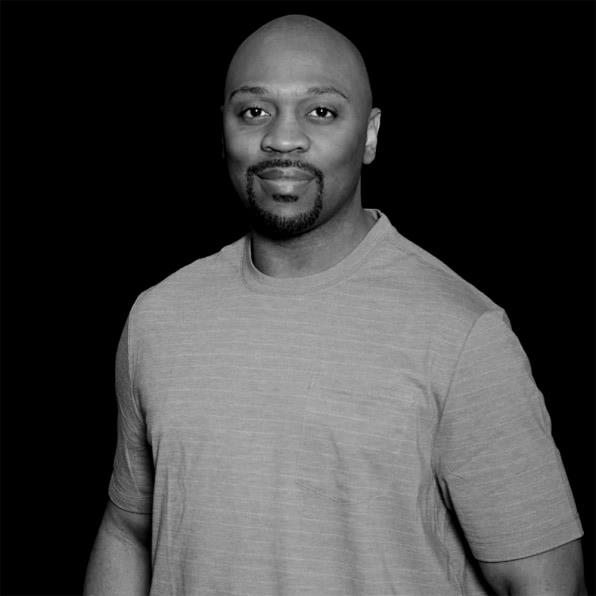This actor teaches CEOs how to be more empathetic
One of Chinyelu Ingram’s most memorable acting roles was a patient named Danesh, who hailed from Grenada and believed in the occult. Playing Danesh was something of a challenge for Ingram, who was well-versed in a Jamaican accent but had yet to try his hand at the Grenadian dialect. The role was a novelty for another reason, too: it wasn’t a bit part in a medical soap opera. Ingram was acting against real-life medical residents.

Ingram had been recruited by Jonathan Fader, a clinical psychologist and coach to founders and CEOs. Fader had been tasked with imparting “cultural competency” to medical residents, to help them better connect with and understand patients from different backgrounds. “At that time, I had done some soap opera work on All My Children,” Ingram says. “I was thinking, ‘Oh, I’m just going to come and pop in here and do this little [job].’”
But after that first session, Ingram was hooked. “I saw it as not just acting but as a real teaching tool—how people can learn about a culture or have empathy for a person’s beliefs through this type of work,” he says. More than 15 years later, Ingram—who also moonlights as a massage therapist—has stepped in to stage real-life scenarios for clients ranging from probation officers to naval officers. These days, however, Ingram helps CEOs and business leaders put into practice the techniques Fader imparts in his coaching sessions.
One such example is motivational interviewing, a technique designed to help people draw their own conclusions and find internal motivation to make changes. “It’s easy to talk about empathy and how important it is, but it’s really hard to teach it,” Fader told me recently. “What motivational interviewing does is it gives people a structure for how to communicate empathically. When you’re teaching people to be empathetic, what you’re really doing is asking more open-ended than closed-ended questions. Rather than listening to reply, you’re listening to understand.”
Play-acting may seem like a strange, expensive conceit for executives who struggle to empathize with employees from their perch. But clients tell Fader and Ingram that it really works—that running a scene with an actor is “as close as they can get” to a real conversation they might have with employees. “CEOs have this position where they seem like the authority,” Ingram says. “So sometimes they’ll talk to you like [that]. What we do helps them be much more empathetic to the people who are their employees.”
Fader might train Ingram to take on the role of, say, an employee who’s on thin ice, if the client wants to work on using motivational interviewing to provide feedback in a constructive way. But Ingram isn’t just inhabiting a character; the training is also an exercise in improvisation, where he has to play off what the client says or does. Playing the role of an employee, Ingram might disagree with his “boss” on how to implement something new. The CEO would then try to use motivational interviewing to help the worker see it their way.
“Instead of using ‘do you’ or ‘will you’ or ‘yes or no’ questions, you would [ask], ‘How do you think this new system would benefit the company?’” Ingram says. “It forces the worker to come up with a reason. And I have levels of resistance, depending on how much Fader wants me to resist, but usually it’s based on how [the client is] questioning me.”
Often, Ingram is listening for certain cues—phrases or types of responses that indicate whether a client is or isn’t responding appropriately—and then acts accordingly. “[I may] literally shut down if they’re using a certain type of language, or telling me what to do,” he says. “I may even take out my phone.” A client would see that response and adjust their approach. If Ingram expressed that he was having trouble in his work environment, their employer might respond with a reflection, such as: “It must be tough for you to come to work everyday feeling the weight of the world on your shoulders.”
Ingram says he often doesn’t rehearse much prior to a session, beyond the preparation and backstory he gets from Fader. “It’s better that we don’t rehearse because it’s in real time,” Ingram says. “And I love it too because I try to trip them up. Sometimes I’ll do something ridiculous, like start rapping.”
Over the years, Ingram has found that the sessions helped hone his acting chops. “If I have an audition after I do a training, I always book it,” he says. “Because I’m in a real place. When you’re working with CEOs or doctors, you can’t fake it. That’s what I love. It’s better than going to acting class.”
As a person of color, Ingram says the biases he sometimes brings out of clients are particularly telling. Some may point to his race as they interact, even if Ingram hasn’t drawn attention to it. “We’ve had scenarios where the character doesn’t specify whether or not it’s an African American character,” he says. “And [the client] will bring it up. We had one instance where somebody said, ‘Why does the ethnic person have an issue?’ And I said, ‘Oh, I’m ethnic?’ So then we had to address that.” On a number of occasions, Ingram says, the topics being tackled in trainings with leaders are diversity issues. In one scene, the prompt was for Ingram to accuse a leader of “down-and-out racism.” “At the end of these sessions, we find some people are surprised at their prejudices,” he says.
But Ingram admits that he, too, has grown more self-aware and empathetic as he assumes different roles. “It made me even more sensitive to people with [diverse] cultural beliefs,” Ingram says of his work with Fader. After all, it’s not just CEOs and founders who can benefit from this kind of training.
“In every type of setting we’ve trained in, there’s a similarity with a lack of empathy,” Ingram says. “Even in life, I find myself now just sitting on the train, watching a conflict arise, [thinking], ‘This could be settled so much more easily if people had some more exposure to [other] people’s experiences or beliefs.’ We could avoid so much conflict in the world if we were more empathetic.”
(15)



